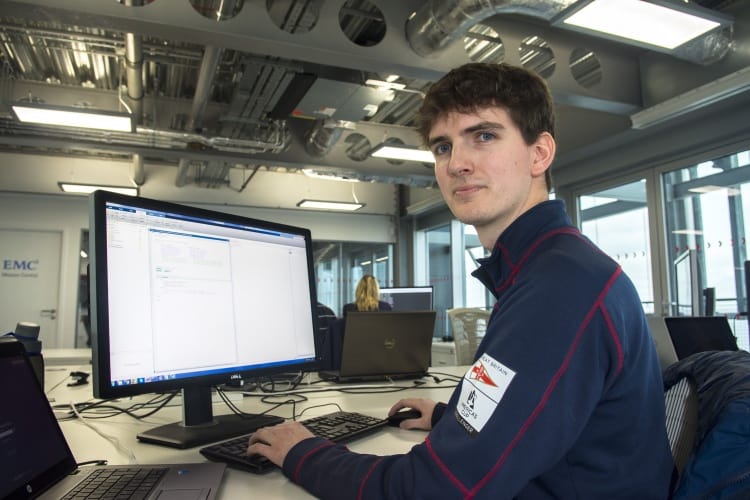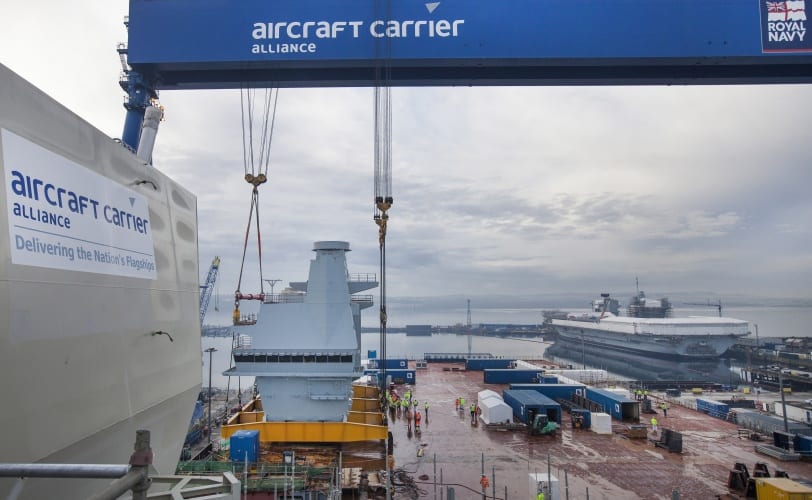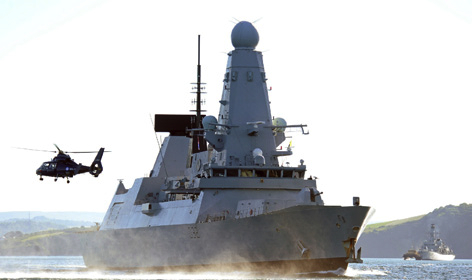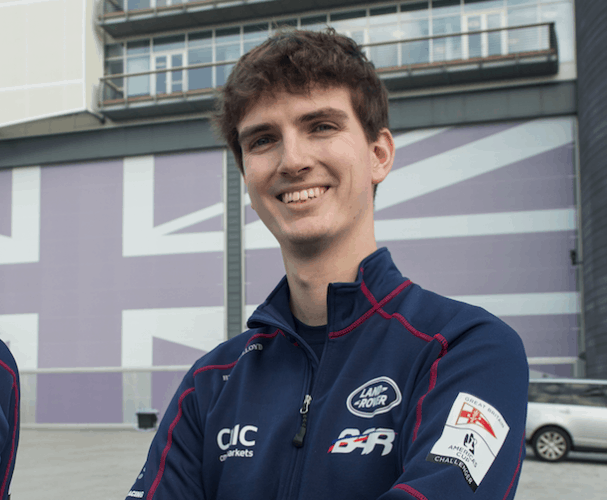For his third placement, Adam became the first graduate to undertake a secondment with Ben Ainslie Racing (BAR), the team set up by the four-time Olympic gold medallist that will attempt to win the America’s Cup for the UK for the first time. The Student Engineer caught up with Adam to find out about his path into BAE Systems, what the placements have been like so far, and what interesting projects BAE has lined up for the future.

Hi Adam. Can you tell us a bit about the first two placements before you started with Ben Ainslie Racing?
My first placement was in the Hunt COM (Class Output Management) Design & Safety Team who effectively manage the design and availability of the eight Hunt Class Mine Countermeasures Vessels (MCMVs). While working there it gave me a great opportunity to get my overalls on and go onboard serving Royal Navy ships. I undertook onboard surveys and had to deal with any problems that arose. The placement gave me the opportunity to work very closely with the customer (MoD) as well as interact with ship staff.
My second placement was in the Type 26 Hydromechanics team within BAE Systems Maritime - Naval Ships (a secondment from BAE Systems - Maritime Services). I was part of the design team for the new Type 26 Global Combat Ship focusing primarily on modelling the ships stability (both while intact and when subjected to damage) as well as its manoeuvring capabilities. This placement gave me a great opportunity to work on the design of a new ship, develop my analytical skills and work with customer requirements.

Instead of studying for your A-Levels or starting a college degree, you undertook six International Baccalaureate (IB) subjects. What prompted you to take this direction, where did you study for your IB and does BAE Systems look favourably on IB over A Levels?
The International Baccalaureate was fairly unknown back in 2006 when I started it. I studied the IB at Stanborough Park School in Garston, Watford. Now the IB has grown within the UK, is taught across the world and is recognised in almost every country.
What attracted me to the IB was the well-rounded education it offered with the chance to study the Maths and Science I needed as well as Business & Management, English and French. In the IB you also have to complete a Theory of Knowledge course, write an Extended Essay on a topic of your choosing and complete 150 hours of Creativity, Action and Service (CAS). I organised a number of fundraising events such as cycle rides and badminton tournaments and also visited India on a humanitarian trip.
I don’t believe BAE Systems looks any more favourably on the IB compared to A Levels. However, completing the IB provides people with more rounded personal development and “soft skills” than traditional A Levels, which is invaluable when attending Assessment Centres.

You studied study Ship Science and Naval Architecture at the University of Southampton. Now that you’ve worked with BAR, are you tempted to ‘jump ship’ and work full time on racing vessels? On a more serious note, the maritime industry is very broad and varied. What drove you to military platforms over, for example, a luxury yacht manufacturer?
I did consider jumping ship and joining Land Rover BAR full-time! However, my passion for working in Portsmouth Naval Base and supporting the fleet of Royal Navy ships drew me back. Working on military platforms such as Royal Navy ships gives a great sense of satisfaction and patriotic pride. In many ways, a complex warship like a Type 45 destroyer is more interesting due to the sheer scale of the product and the complexity of the systems onboard. I also love the amount of history that Portsmouth Naval Base is steeped in and love working here.

The future looks relatively rosy for military ships right now. Are there any projects that BAE is working on that you’d really like to work on and why?
Indeed there are many interesting projects underway within BAE Systems right now, especially in the maritime sector. With the Type 26 Global Combat Ships in final design stages, Batch 2 OPVs soon to start production and the Successor submarine programme progressing, it seems like the perfect time to be working in the maritime defence sector. Here in Portsmouth Naval Base our support of the Royal Navy fleet continues and with the fast approaching arrival of the Queen Elizabeth Class carriers, the organisation set up to manage them (QEC COM) is certain to be an exciting place to work. However, I want to focus on developing my technical abilities as a Naval Architect by joining the Naval Architects Office in our Technical Authority Services organisation. There I will have the opportunity to undertake inclining experiments, ship dockings as well as stability and structural analyses.




Red Bull makes hydrogen fuel cell play with AVL
Formula 1 is an anachronistic anomaly where its only cutting edge is in engine development. The rules prohibit any real innovation and there would be...